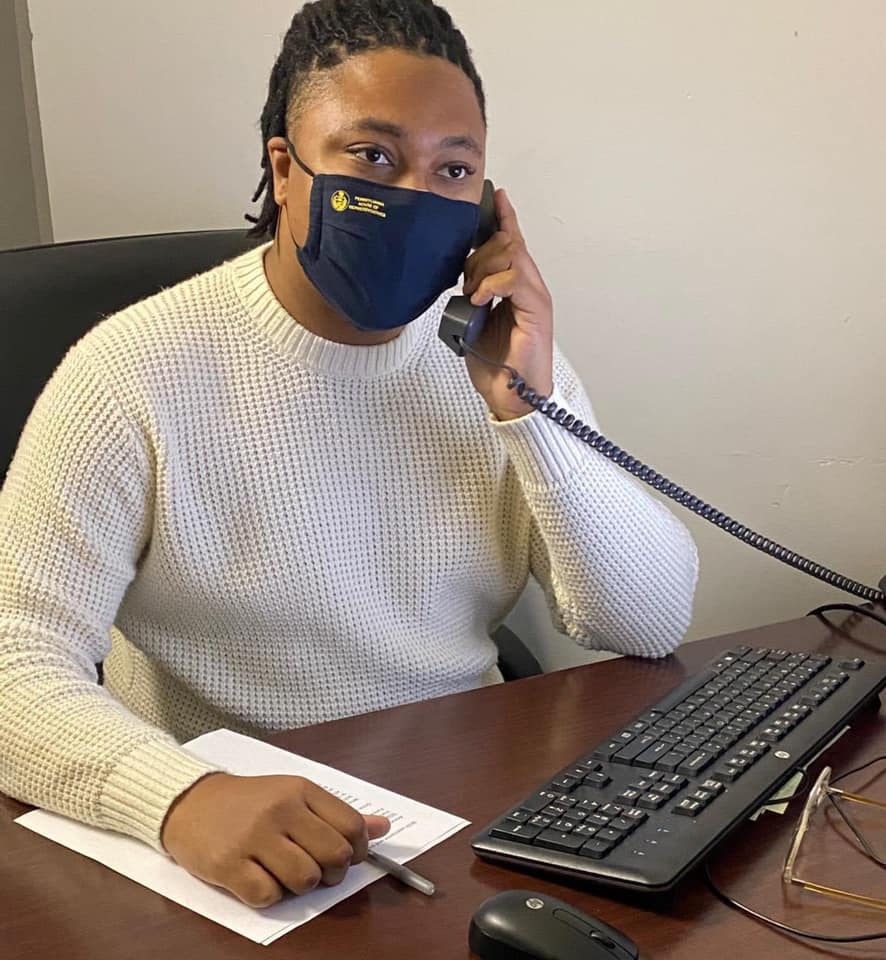Legislator Spotlight: Pennsylvania Rep. Malcolm Kenyatta
Top photo by Swiger Photography. This interview was conducted via Zoom and has been edited for length and clarity.
How would you define what it means to be a successful state legislator?
I think first and foremost, you have to do the homework. When I come into a committee hearing, it is very rare that I've not read every line of a bill or the analysis of the legislation. Even if it's seemingly benign legislation, there may be things in it that are bad for my constituents.
Even more, there might be opportunities to make the legislation better. For example, a colleague who is not my favorite person on the Republican side—introduced a bill to have outside health experts oversee the Department of Health. So I introduced multiple amendments to include a deep dive into the racial disparities of COVID.
How did you figure out that you should try to introduce amendments?
Being in the minority, I seek opportunities to introduce priorities into broader pieces of legislation. If I can make amendments, then we can make life a little bit better for the community members who are not often centered in our policy conversations. Politics is a math problem. If the minority doesn't have 102 votes in the [Pennsylvania] House, 26 votes in the Senate, and a governor who's willing to sign the legislation, then it is not going to become law. It's very rare that I get 102 votes on something, but there are ways for me to use the amendment process.
What surprised you about being a state legislator?
It should not have surprised me that it takes a really long time to get anything done. It is incredibly disappointing because there are chronic issues that are impacting people I love and care about. Those lived experiences are what drove me to run in the first place.
As a member of the minority, we don't control the calendar or when a bill comes up, so a lot of time is spent sitting around waiting for things to happen. The reason being, people see the meal based on where they're sitting at the table, so if you're sitting in front of the turkey that's the most important thing.
In Pennsylvania, we are a large, diverse state, so, for some, doing something about Volunteer Fire companies is the most important. For others, it's charter schools, bus contracts, etc. So the question is, how do we find synergy around the time in which we approach those priorities?

What's your proudest moment or accomplishment?
I'm deeply proud of protecting the right to vote in our democracy, especially while the [former] president tried to dispute the election. Until the very last hours of the session, GOP legislators were introducing legislation to try to overturn the electors. With Pennsylvania being the tipping-point state, it was an important feat just to come to work and speak up. I was also a party to a number of the Pennsylvania Democratic Party lawsuits against the president, and I'm deeply proud of that.
How do you stay true to your values in a political system that's designed to uphold the status quo?
We shouldn't be trying to build compromise, we should try to build consensus. Building consensus is about ensuring that your values are in the room and talking openly and honestly about what makes people's lives better.
Even more, it is about figuring out how we build coalitions to make lasting, substantive change. We have to get buy-in from a bunch of different people, which takes real skill and real commitment. It is not about taking any deal just to get a deal. It's about getting a deal that doesn't just bandaid the problems we face and instead is a real surgical approach to the things that are deeply broken.
What advice would you give newly elected state legislators as they enter their first session?
Remember why you ran. When you get into the hustle and bustle of it all, sometimes we forget some of the conversations that inspired us or forget the people who encouraged us. They saw something in us, and they still want to see that in action.
I say to my constituents all the time, yes, I want you to vote for me and I appreciate your vote, but I also need you to write letters about the legislation I introduced. Secondly, when it's safe to, I need you to come up to Harrisburg and share your stories about why I introduced this legislation and what it can mean to your family. And finally, I need you to talk to the press and write op-eds.
Also, remember you are not in this alone, because there is literally nothing you can do by yourself. Everybody must recognize the stewardship required for our democracy to work, and elected leaders do not have the only role.
To my fellow legislators: don't take on the pressure that you have to change the world alone. That is a reductionist mentality because you cannot do it all by yourself. Above all else, don't give up your personal life because it is very easy to do that. You can always be doing legislative work, but your family and the people who love you deserve to have you too.
 Rep. Krueger-Braneky represents the 161
Rep. Krueger-Braneky represents the 161